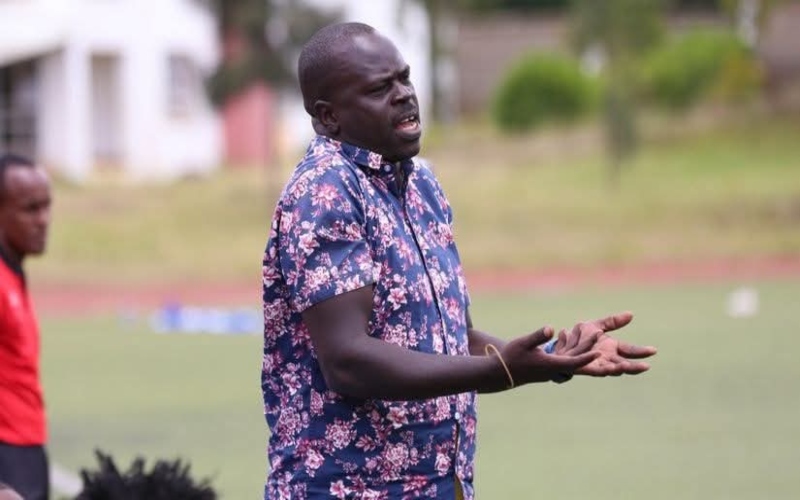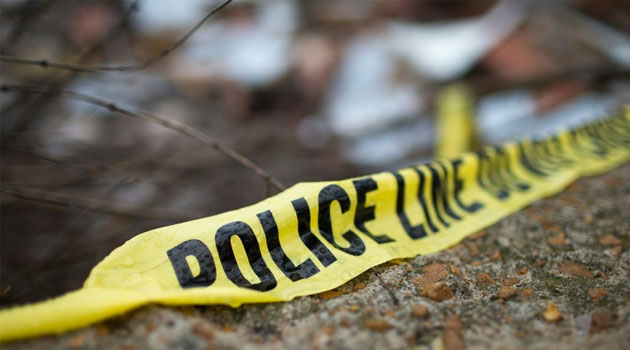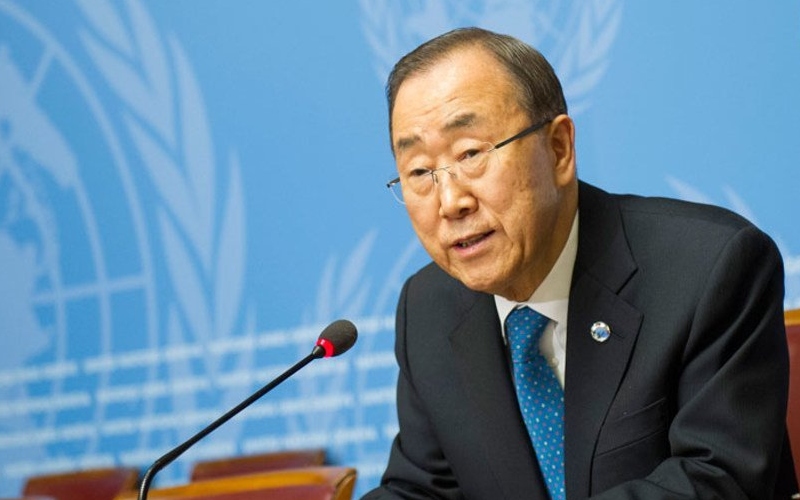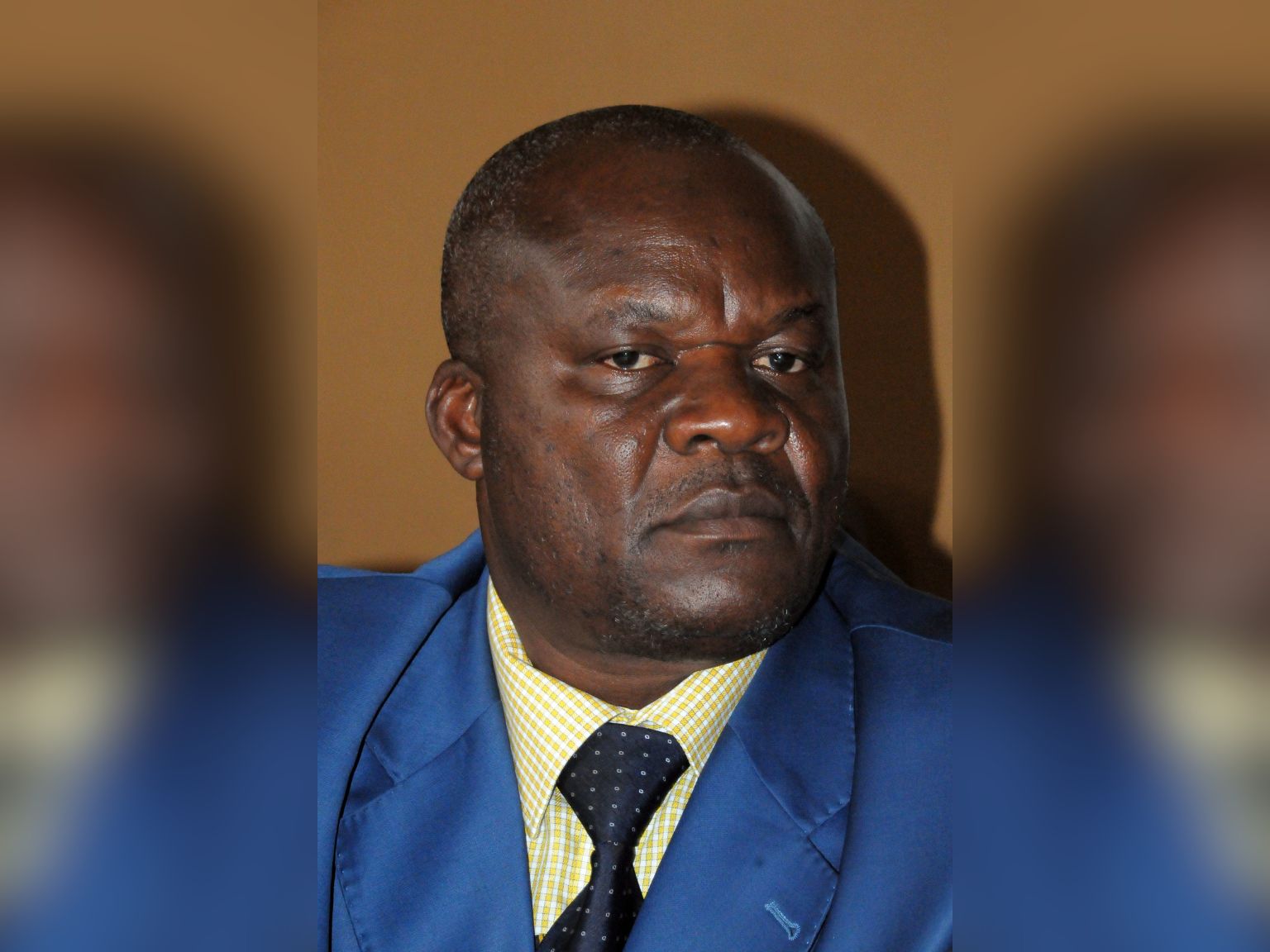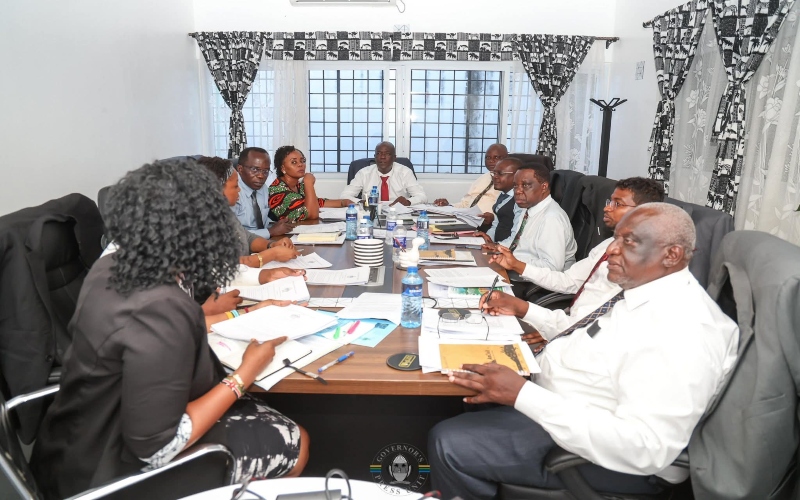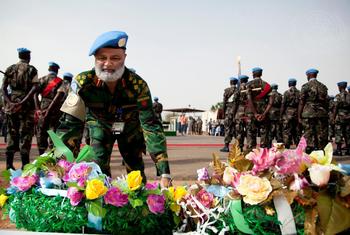At least 700 killed in DR Congo fighting - UN

UN spokesman Stéphane Dujarric warned that the number of deaths was expected to rise further.
The United Nations says that at least 700 people have been killed in heavy fighting in Goma, the biggest city in eastern Democratic Republic of Congo, since Sunday.
UN spokesman Stéphane Dujarric said 2,800 people had been injured as M23 rebels took control of Goma, the capital of North Kivu province.
More To Read
- DR Congo, M23 commit to ceasefire and humanitarian protocols with new peace deal
- DRC and M23 rebels sign Doha Peace Framework in bid to end conflict
- M23 accuses DRC Government of attacks hours after Doha ceasefire monitoring deal
- DRC Government, M23 ink deal to establish mechanism for monitoring potential permanent ceasefire
- Congo: Are M23 rebels really advancing toward Kinshasa?
- DR Congo: All sides may be guilty of war crimes - UN probe
The rebel group is now reportedly advancing south towards Bukavu, the capital of South Kivu.
The conflict in eastern DR Congo has been ongoing since the 1990s but has worsened in recent weeks.
M23, a rebel group made up of ethnic Tutsis, claims to be fighting for minority rights, while the Congolese government accuses them of seeking control over the region's vast mineral resources.
Dujarric stated that the casualty figures were based on an assessment conducted by the World Health Organisation (WHO) and its partners, in collaboration with the DR Congo government, between Sunday and Thursday.
He warned that the number of deaths was expected to rise further.
In an effort to stop M23's advance, the DR Congo military has established a defensive line on the road connecting Goma to Bukavu, according to AFP news agency.
Hundreds of civilian volunteers have also been mobilised to defend Bukavu.
One young volunteer told AFP, "I am ready to die for my country."
Jean-Jacques Purusi Sadiki, the governor of South Kivu, said government forces and their allies were holding off the rebels.
However, this claim has not been independently verified.
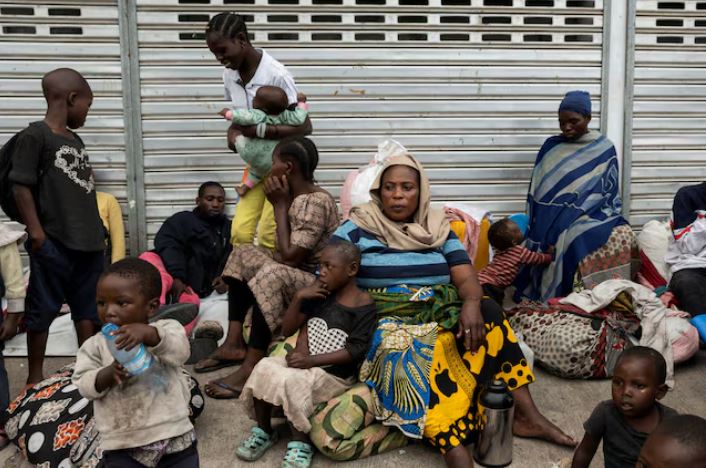 Colleta Nzabonipa, 54, sits among other internally displaced people who fled from various camps following fighting between M23 and the Armed Forces of the Democratic Republic of the Congo, in Goma, eastern Democratic Republic of Congo, January 26, 2025. (Photo: REUTERS/Arlette Bashizi)
Colleta Nzabonipa, 54, sits among other internally displaced people who fled from various camps following fighting between M23 and the Armed Forces of the Democratic Republic of the Congo, in Goma, eastern Democratic Republic of Congo, January 26, 2025. (Photo: REUTERS/Arlette Bashizi)
Earlier this week, M23 declared that it would continue its offensive until it reached Kinshasa, the country's capital, which is about 2,600km (1,600 miles) to the west.
DR Congo's Foreign Minister, Thérèse Kayikwamba Wagner, accused Rwanda of illegally occupying Congolese territory and attempting to orchestrate regime change, a claim that Rwandan President Paul Kagame has denied.
"The international community has allowed Rwandan President Paul Kagame decades of impunity and failed to hold him accountable for violating international law," Wagner told the BBC.
Rwandan government spokeswoman Yolande Makolo dismissed the claims, stating that Rwanda's troops were only deployed to prevent the conflict from spilling over into their territory.
"We're not interested in war, we're not interested in annexation, we're not interested in regime change," Makolo said in an interview with BBC's Newsday program.
On Friday, the Southern African Development Community (SADC) declared its support for DR Congo at a crisis summit held in Zimbabwe.
In a statement, the 16-member bloc reaffirmed its commitment to supporting DR Congo's efforts to safeguard its independence, sovereignty, and territorial integrity.
SADC has deployed peacekeeping troops, mainly from South Africa, to help restore peace and combat armed groups like M23.
In the past week, 16 soldiers from southern African nations have been killed in clashes with M23 near Goma.
The ongoing violence has worsened the humanitarian crisis in eastern DR Congo.
Shelley Thakral from the UN's World Food Programme warned that residents in the affected areas were running out of food, clean water, and medical supplies.
"The supply chain has really been strangled at the moment if you think about land access, air access when everything is closed down," she told AFP.
Since the start of 2025, more than 400,000 people have been displaced, according to the UN refugee agency.
DR Congo is Africa's second-largest country about two-thirds the size of Western Europe and borders nine different nations.
Previous conflicts in the region during the 1990s drew in several neighbouring countries and were referred to as Africa's World Wars.
Top Stories Today


